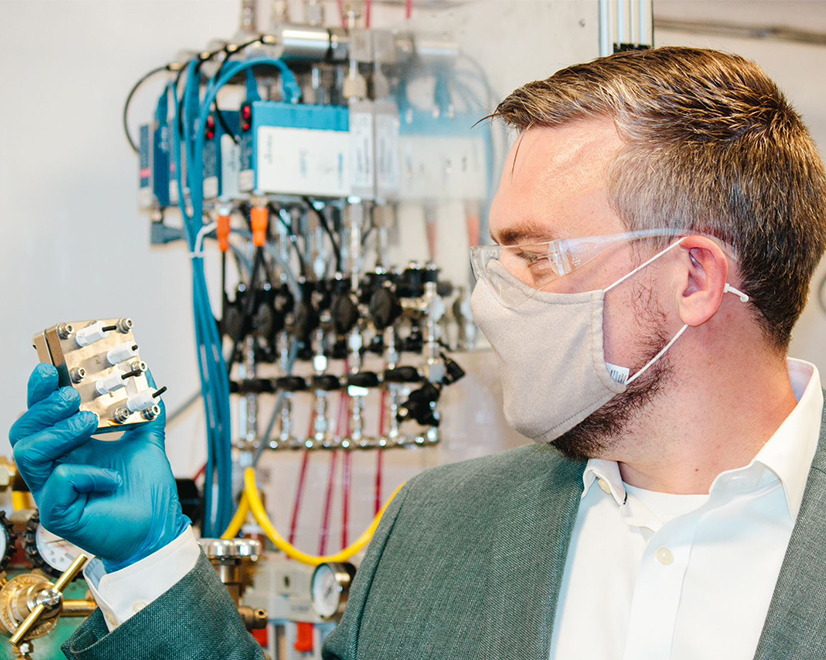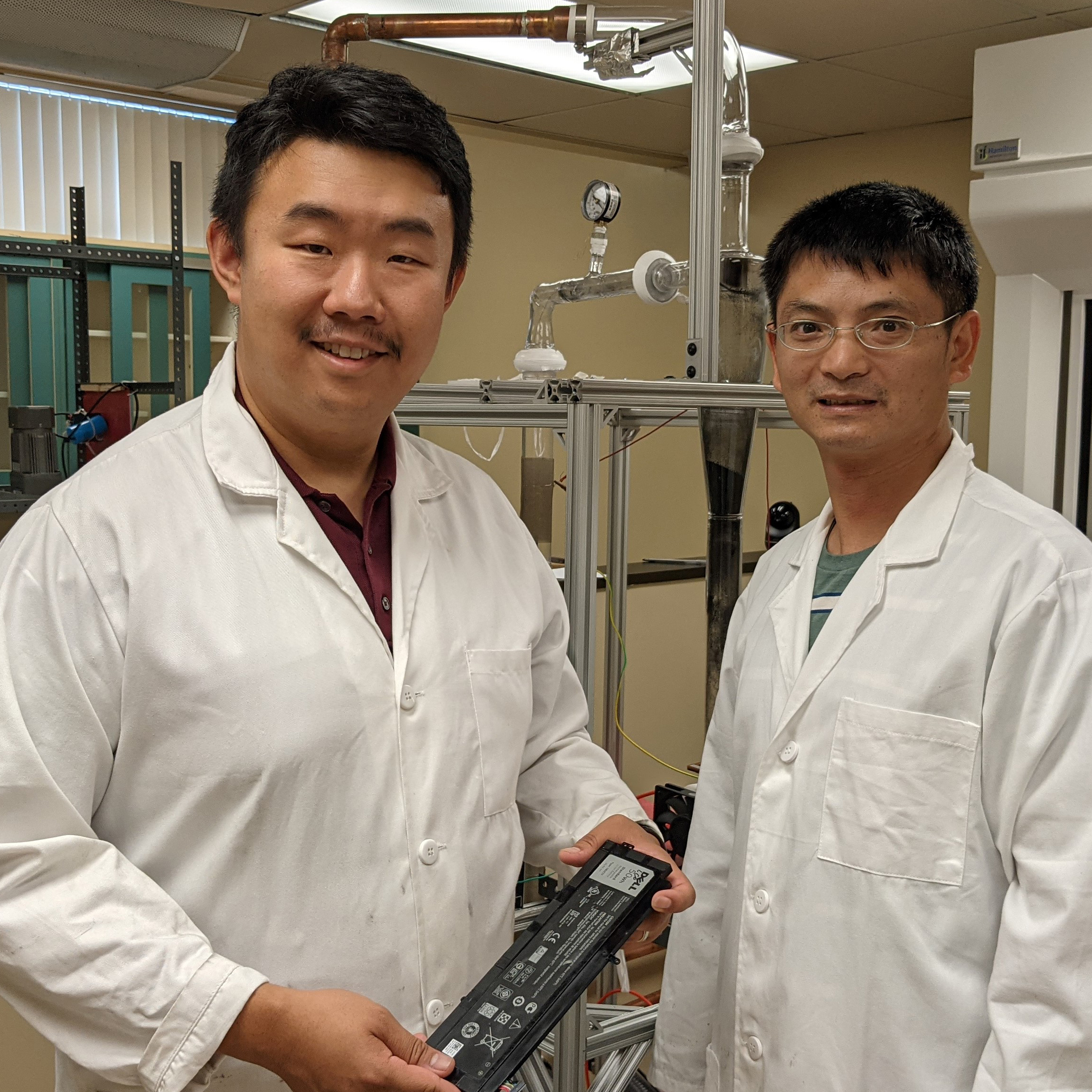
New Jersey has awarded $750,000 in seed money to 10 companies working on clean-technology innovation and is planning a second round of awards in the late fall for as much as $2 million to help early-stage companies looking to tackle climate change with new technology.
The products funded by the New Jersey Commission on Science, Innovation and Technology (CSIT), picked from 24 applicants, include smart glass that can improve a building’s energy efficiency; an electromagnetic process that converts carbon dioxide to plastic precursors; and a process to recycle old lithium batteries into new batteries.
All of the grant recipients, announced Aug. 5, are developing or testing “clean technologies intended to recapture or avoid emissions of greenhouse gases” and pollutants, according to the CSIT. The commission’s criteria for picking recipients included how innovative the company’s idea is and whether other companies are doing the same thing; what is the proposed market strategy to bring the product to fruition; its potential for creating jobs; and the expected impact in reducing greenhouse gases, Executive Director Judith Sheft said in an interview.
Seeing the “robust set of applicants” that stepped up in the first round, the CSIT Board on Friday voted to immediately create a second round of awards in the Clean Tech Seed Grant Program, she said.
“We envision having probably about $2 million that we’ll be able to give out as cleantech seed grants,” she said. “We’re trying to target those early companies who are really just getting started.”
Nurturing Nascent Innovation
The program is gearing up to help create a groundswell in cleantech development as the state seeks to reach Gov. Phil Murphy’s goal of generating 100% clean energy by 2050. The grant funds are provided by the Clean Energy Program run by the New Jersey Board of Public Utilities (BPU), and close attention is paid in the selection process to supporting innovations that originated in state universities, Sheft said.
The grants are among several efforts by New Jersey to nurture startups and bolster the state’s reputation as a technology center. The CSIT also has a voucher program in which early-stage companies can apply for multiple vouchers totaling up to $15,000 a year to defray the cost of research and development. And the New Jersey Economic Development Authority in April launched a partnership with business incubator Cleantech Open Northeast as part of its NJ Accelerate, a startup support program. (See NJ Partners With Clean Tech Accelerator.)
The CSIT grants will help ensure that “New Jersey entrepreneurs have every available resource to fuel the growth of their companies,” state Sen. Robert Singer said in a statement announcing the awards.
“By connecting these 10 startups with access to precious seed capital, we are helping them work toward commercialization and reach a point where they can attract outside investors and begin to compete in the global economy,” Singer said.
Recycling Batteries
Princeton NuEnergy, a Bordentown-based company that grew out of technology developed at Princeton University, said that although the company’s $75,000 CSIT grant is relatively small, it will help in a number of areas. The two-year-old company has created a new process to recycle materials from lithium batteries and reconstitute them into new batteries that are cheaper, use less energy and produce less carbon dioxide than previously available systems, the company said.

The funding likely will help support Princeton NuEnergy’s R&D, help the company do market research to better understand the market and help improve its production process, CTO Xiaofang Yang said in an interview. The company this month also was awarded $1.15 million from a U.S. Department of Energy program that supports small business innovation and research, and has received about $700,000 from angel investors, the company said.
That funding will go toward launching a pilot production line of its battery recycling process in Dallas for which it has signed agreements with two collaborators: Wistron GreenTech and eTak Worldwide, Yang said.
“So basically, the company right now is in a transition from the lab-scale to industrial production-scale,” CEO Chao Yan said.
Taking Carbon from the Air
Anders B. Laursen, CEO of Cranford-based RenewCO2, also said his company’s $75,000 award will allow it to advance and “accelerate our R&D work to the next stage of development.” The company is developing a process, which originated in research at Rutgers University, that removes carbon dioxide from the air and uses it in the production of industrial chemicals.
“Electrochemical processes are like batteries: You can connect them in series to drive a proportionally increased amount of production,” Laursen said in an email. “This grant will allow us to take five such ‘batteries’ and connect them together in a so-called electrolyzer stack.”
The demonstration will be the “first of its kind for direct CO2 to ethylene glycol” and will serve as the next step toward the company mounting its pilot production unit, he said.
Other grant recipients include:
-
-
- Andluca Technologies, a Princeton-based company that spun out of Princeton University, received $74,969. The company is developing UV-solar-powered smart glass that can control the entry of light and infrared heat into a building and improve energy efficiency.
- WeSolar CSP, located in Princeton, received $75,000. The company designs and builds scalable and modular concentrated solar power plants for energy and heating solutions for government, utilities, corporations, industry, communities and microgrids.
- Somerset-based NextGen Battery Technologies received $74,939. The company is developing a high-voltage, non-flammable solid-state electrolyte for lithium batteries.
- Farm to Flame Energy, of Kearny, received $74,995. The company provides scalable, end-to-end electricity generation systems using biomass for communities in underdeveloped countries.
-


